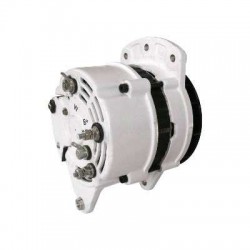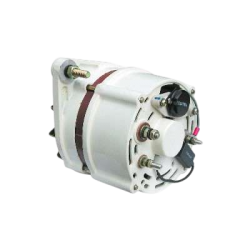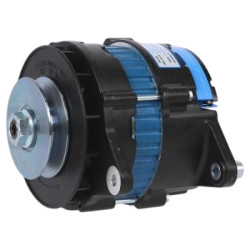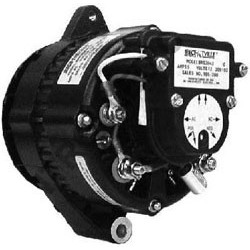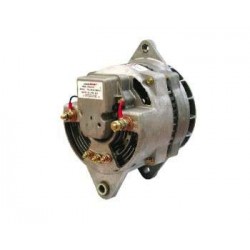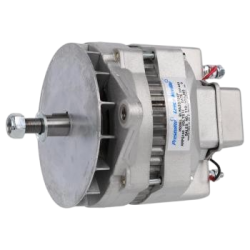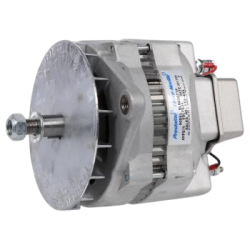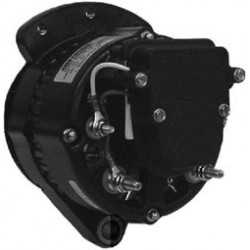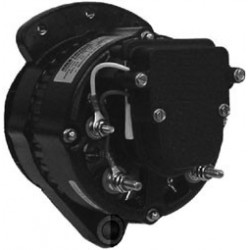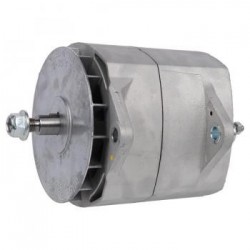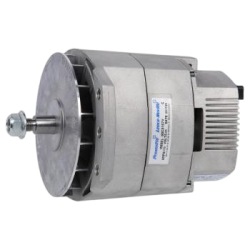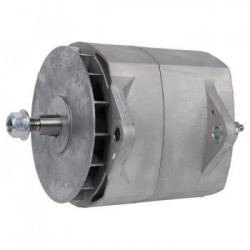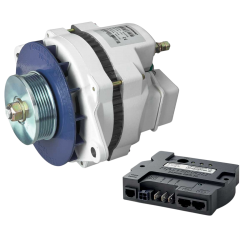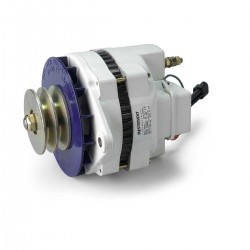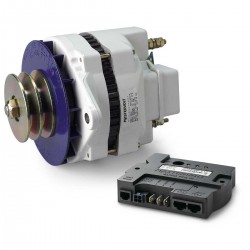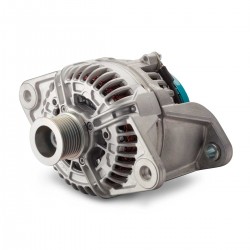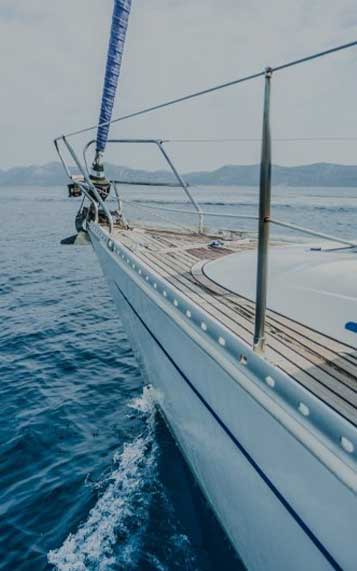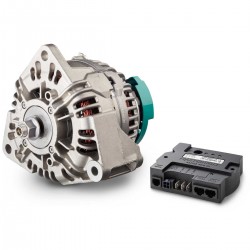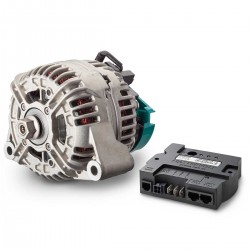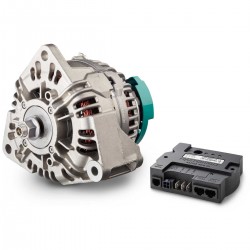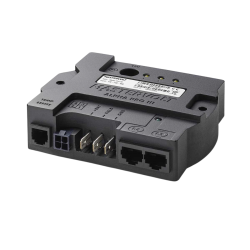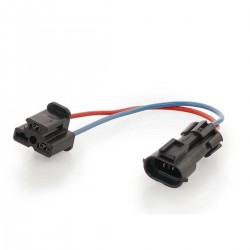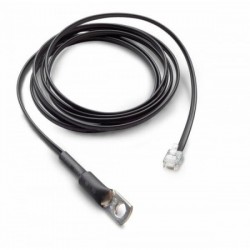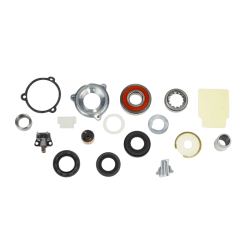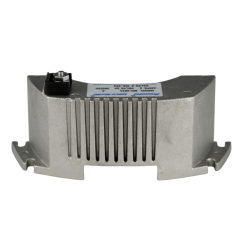Marine alternator
A marine alternator is a device used to generate electricity on board a boat. It is usually powered by the boat's main engine, which drives the alternator in rotation. It transforms the mechanical energy of the engines into electrical energy.
Typically used as a battery charger, the electricity produced is stored in a battery and then used to power appliances on board the boat. A boat alternator is an essential accessory, so no energy is wasted.
Discover our range of 12V and 24V alternators. These alternators are specifically designed to withstand marine conditions.
Whatever the amperage or voltage your electrical installation requires, you'll find the marine alternator(s) you're looking for at the best price in this section.
Don't hesitate to contact our team for help in choosing your alternator. Stock status and restocking dates are generally indicated in the product list. Opt for home delivery or relay point delivery.
Alpha 24V/75A alternator with Alpha Pro III charge controller
- -€125.92
- -€130.92
Alpha 12V/130A alternator + Alpha Pro III charge controller
- -€133.42
Alpha compact 24V/110A alternator with Alpha Pro III charge controller
- -€236.42
Alpha compact 12V alternator + Alpha Pro III charge controller
- -€249.75
Alpha compact 24V/150A alternator with Alpha Pro III charge controller
- -€273.25
Alpha Pro III 12 & 24V controller - compatible Mastervolt & Bosch
- -€34.52
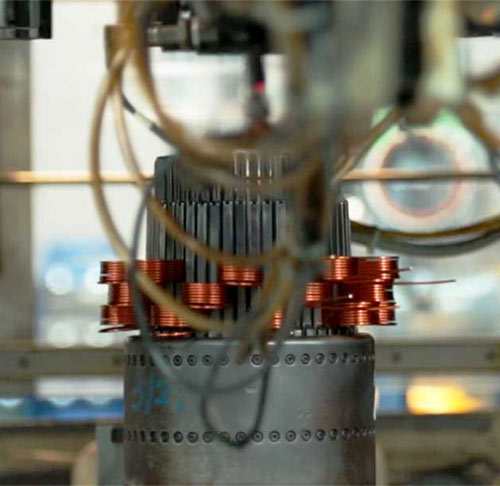 |
THE MARINE ALTERNATORWhen changing your alternator or adding a second one, it's essential to take into account a few specific characteristics. First of all, a boat alternator differs from a car alternator in a number of essential respects. All marine alternator parts are tropicalized, i.e. they are corrosion-resistant (sealed bearings, anti-corrosion, etc.) and therefore suitable for use at sea and resistant to water. Likewise, the bearings are " greased for life ", making them maintenance-free. What's more, for our boats, it's often necessary to insulate the mass . In this section, you'll find a wide choice of12V or 24V (Volts)alternators , in various amperages, with right-hand or left-hand rotation, with radial blades or with right-hand and left-hand rotation, or with and without pulleys. Our advisors Comptoir Nautique will be able to provide you with all the information you need on the reference you require: don't hesitate to contact them by e-mail or telephone. |
HOW A MARINE ALTERNATOR WORKSThemarine alternator converts themechanical energy produced by the engine into electricity, which can be used to power the electrical appliances and equipment on the motorboat or sailboat. Marine alternators are generally smaller and lighter than shore-based alternators, making them easier to install on board a boat. They are also designed to withstand harsh marine conditions, such as rain, salt and vibration. If you're looking to buy a marine alternator, it's important to choose a model suited to your needs in terms of power and size. The operation of a marine alternator is similar to that of a conventional alternator. The alternator is powered by the boat's main engine, which drives a rotating rotor. The engine is connected to the alternator by a belt, which rotates the alternator (like a pulley). The rotor is surrounded by an armature coil, which is connected to an electrical circuit. When the rotor turns, it generates a magnetic field that induces an electric current in the coil. This alternating current (AC) is then rectified by a rectifier to produce direct current (DC) electricity, which can be used to power the boat's electrical appliances and equipment, or recharge the batteries. We recommend using a regulator with a marine alternator to control the voltage and current produced by the alternator. The regulator keeps the voltage at a constant level, which is important for protecting the boat's electrical appliances and equipment. The regulator can also protect the alternator against overloads, which can extend its service life. If you use a marine alternator without a regulator, the voltage and current produced by the alternator may vary according to engine speed and the load on electrical appliances. This can cause damage to electrical appliances and boat equipment, as well as to the alternator itself. By using a regulator, you can avoid these problems and ensure safe, stable operation of your marine alternator. |
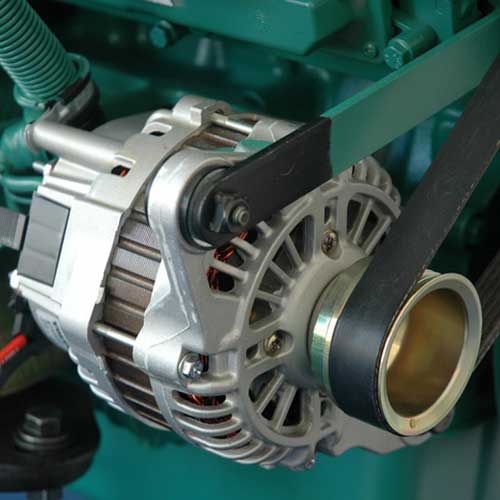 |

